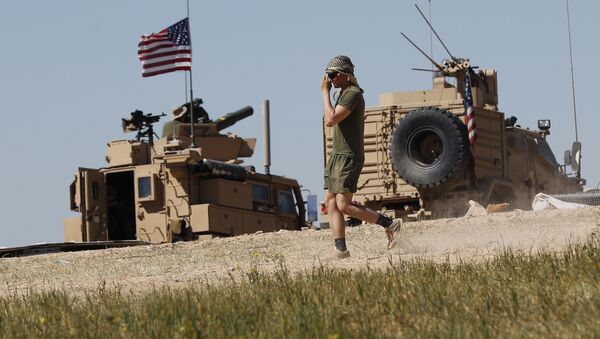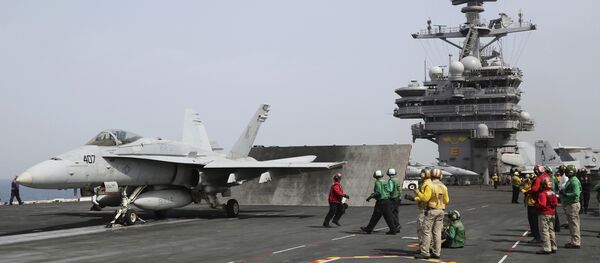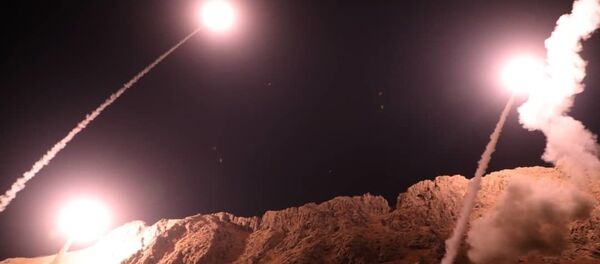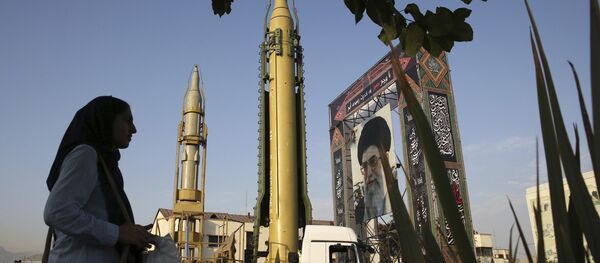The latest quarterly report by the Lead Inspector General on the status of Operation Inherent Resolve, the codename for the US military's intervention against Daesh* in Syria and Iraq, has paid extensive focus to Iran, mentioning it 105 times in 130 pages. However, while accusing Tehran of posing a growing threat to US forces, the report admits that the Department of Defense has "no evidence" that Iranian troops or Iranian-allied militia have actually attacked the US in Syria.
The report also hints at a confused US policy in Syria, pointing to Trump National Security Adviser John Bolton's recent statement about keeping US troops in Syria so long as "Iranian troops" and "Iranian proxy militias" remain outside of Iran.
This sentiment, the report admits, has led to "questions about the legal justification of maintaining US troops in Syria, which currently relies on the 2001 Authorization for the Use of Military Force against those who 'planned, authorized, committed, or aided the terrorist attacks that occurred on September 11, 2001,' which has been interpreted as including [Daesh]."
The DoD points out that in the wake of Bolton's remarks, military officials have changed tack, paying lip service to the "enduring defeat" of Daesh while telling congressional committees about the "ancillary benefits" and "leverage" provided by the continued presence of US forces in Syria.
Pointing to shifting political goals, which now seem to include "removing Iran and Iranian proxies from the country, influencing the outcome of the Syrian civil war…and stabilizing areas of northeast Syria liberated from [Daesh]," the report warns that "these non-military goals could keep the US military involved in Syria after the defeat of [Daesh]" over an unspecified period.
Iranian 'Security Threats' to US in Syria
At the same time, the DoD report admits that "neither Iran nor Iranian-backed militias had hindered counter-[Daesh] operations," and says that the Pentagon has "no evidence" that 'Iranian troops' or Iranian-allied militia have actually attacked the US in Syria.
'Iran-Backed Militias' in Iraq
In neighboring Iraq, the report mentions elements of the Popular Mobilization Forces, Shiite militia groups which played a crucial role in defeating Daesh in Iraq, saying that they pose a similar threat to US interests, given what are said to be their "close ties to Iran."
"The influence of these Shia militias in both the security sector and the political process –and their continued willingness to act independently of the [Iraqi Security Forces] – increases Iran's influence in Iraq," the report states.
Alleging that Iran has deployed some 100-150 Islamic Revolutionary Guards Corps personnel among the militia, the report accuses these "Iranian proxies" of being "likely responsible for two attacks targeting US facilities in Iraq," including a mortar attack in the Baghdad Green Zone in early September and rocket attacks in Basra near the US consulate, which led to the diplomatic mission's temporary evacuation later that month.
Ultimately, the report warns that so far as Iraq is concerned, "if left unchecked, Iranian-sponsored harassment of US forces could increase, and Iranian influence operations could increase as they vie for influence in the new government."
The Trump administration has shifted its position on Syria several times, with the president saying the US would "be coming out of Syria like very soon" in March before launching airstrikes against Damascus two weeks later. In September, National Security Adviser John Bolton linked the withdrawal of US troops from Syria to the alleged Iranian presence in the country, prompting the Pentagon to change its tone on the purpose of the Syria mission being the defeat of Daesh.
*A terrorist group outlawed in Russia and many other countries.






